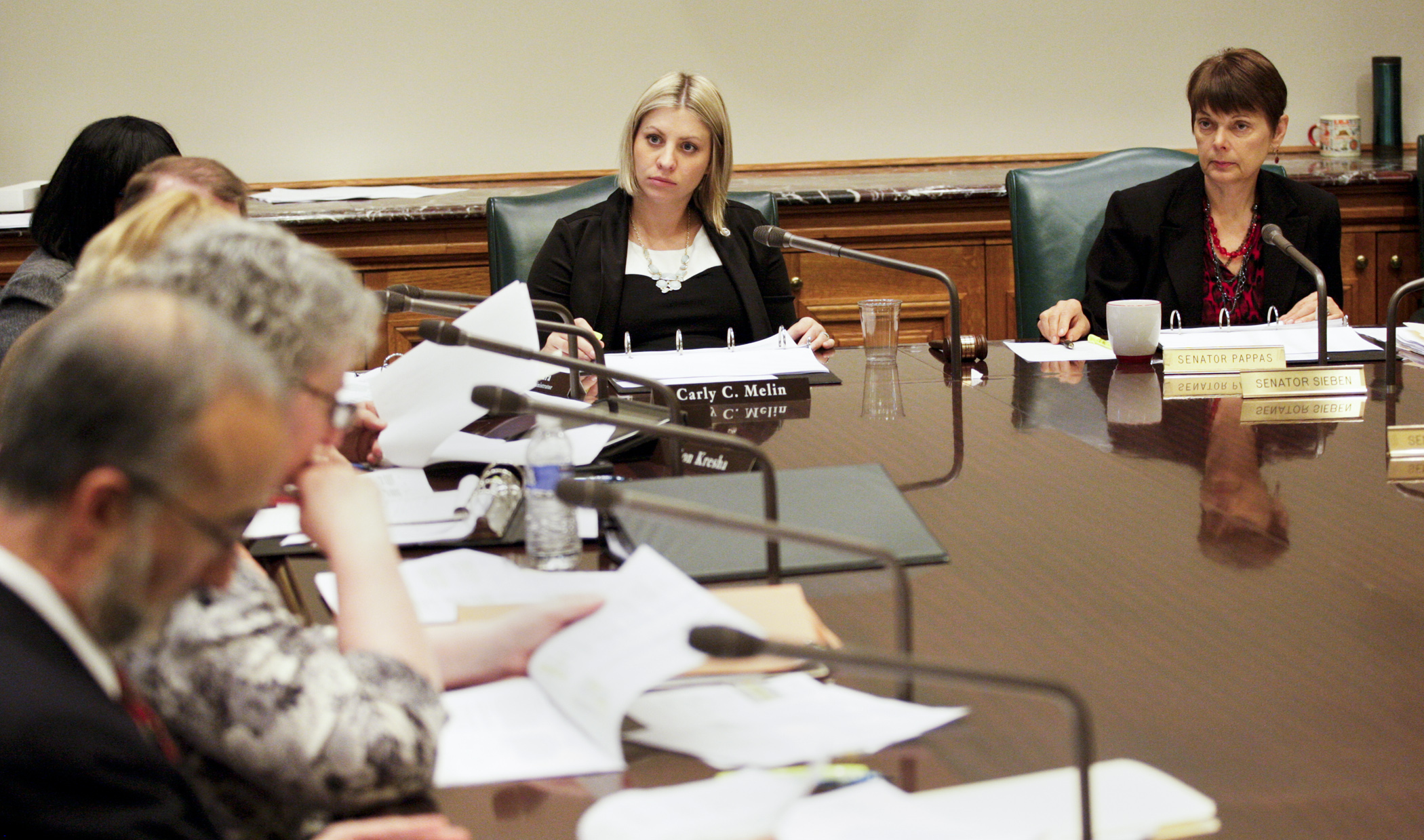Should family caregivers have protected status? Conferees discuss WESA provision
If you’re a family caregiver should you be protected against discrimination in the workplace? This is the question the conference committee on the Women’s Economic Security Act (WESA) seeks to answer as it considers expanding protected classes within the Minnesota Human Rights Act.
The House hopes to add “familial status” and “family caregiver” as protected classes under the state’s Human Rights Act when it comes to employment.
 Rep. Carly Melin and Senate President Sandy Pappas listen as legislative staff do a side-by-side comparison of HF2536*/SF2050, the so-called “Women’s Economic Security Act,” during an April 29 meeting of the conference committee. Photo by Paul Battaglia
Rep. Carly Melin and Senate President Sandy Pappas listen as legislative staff do a side-by-side comparison of HF2536*/SF2050, the so-called “Women’s Economic Security Act,” during an April 29 meeting of the conference committee. Photo by Paul BattagliaRep. Carly Melin (DFL-Hibbing), who sponsors HF2536*/SF2050 with Senate President Sandy Pappas (DFL-St. Paul), said at the committee’s first meeting on Tuesday that confusion is massive in regards to the provision. Several testifiers opposed the House position on the issue as they said it is an opportunity for those considered “family caregivers” to be given special treatment.
“All this does is prevent discrimination against people with that class,” Melin said. “There’s a lot of confusion when it comes to this provision and what the [human rights] act does. You think it’s about giving special treatment, but it’s about not discriminating against these people.”
A type of discrimination could include not giving someone with family caregiver status a promotion because of responsibilities at home or assuming they wouldn’t want it because of those responsibilities.
The Senate removed the provision although Pappas said they weren’t opposed to it. Since the provision deals mostly with employer issues, she said they felt that it should belong in general labor law, not in the Minnesota Human Rights Act.
The act protects myriad classes against discrimination including race, color, sex, marital status, disability and sexual orientation. Currently, “familial status” is considered a protected class, but only when it comes to housing. The House provision would expand the state’s Human Rights Act to also protect familial status when it comes to employment. The provision would also add “family caregiver” as a new protected class.
In some form, both versions of the bill include:
- creating accommodations for nursing mothers who need to express breast milk on the job;
- allowing for victims of stalking or sexual assault to receive unemployment should they need to leave their job unexpectedly;
- asking employers to provide reasonable accommodations for expectant mothers;
- adding more weeks for parental leave;
- creating a grant program to recruit and train women in high-impact industries; and
- allowing employers to voluntarily disclose wages.
At the end of Tuesday’s meeting, there was no indication when the conference committee would meet again.
Related Articles
Search Session Daily
Advanced Search OptionsPriority Dailies
Ways and Means Committee OKs proposed $512 million supplemental budget on party-line vote
By Mike Cook Meeting more needs or fiscal irresponsibility is one way to sum up the differences among the two parties on a supplemental spending package a year after a $72 billion state budg...
Meeting more needs or fiscal irresponsibility is one way to sum up the differences among the two parties on a supplemental spending package a year after a $72 billion state budg...
Minnesota’s projected budget surplus balloons to $3.7 billion, but fiscal pressure still looms
By Rob Hubbard Just as Minnesota has experienced a warmer winter than usual, so has the state’s budget outlook warmed over the past few months.
On Thursday, Minnesota Management and Budget...
Just as Minnesota has experienced a warmer winter than usual, so has the state’s budget outlook warmed over the past few months.
On Thursday, Minnesota Management and Budget...